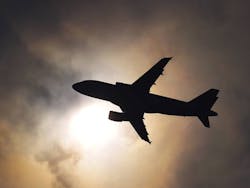Airlines To Experiment With Pricing
Airlines around the world, including U.S. carriers, are experimenting with a new way to sell tickets and personalize prices to win back customers from comparison websites such as Travelocity and Orbitz.
The International Air Transport Association, which represents airlines globally, is promoting the experiment to start next year as a way to customize ticket pricing, including bag fees and seat assignments not seen on comparison sites now.
But travel agents worry that personalized prices will be even tougher to compare and could raise privacy concerns.
In the new comparison plan, airlines would ask shoppers for personal information, including membership in frequent-flier programs, travel history or use of a credit card, as they do at a specific airline site.
Airlines would then tailor a ticket price for each passenger, including pricing items such as meals, extra legroom or expedited boarding. An intermediary would collect the prices offered by various airlines and provide them to the customer.
Currently, airlines contend, they're unable to offer loyal customers a lower price or eliminate a bag fee on comparison sites because shoppers are anonymous.
"Forty years after the birth of the current distribution paradigm, we have an opportunity for a revolution in airline retailing," says Tony Tyler, chief executive of the International Air Transport Association.
At a meeting last week in Abu Dhabi, the association agreed to move forward with what it calls a "new distribution capability." The experiment is scheduled to begin early next year and potentially be adopted by 2016.
Tyler says this plan would allow airlines to customize their offers -- even through travel agents.
Airlines prefer to sell tickets through their own websites, where 40% are sold.
U.S. airlines say they pay billions in fees, and rates rise annually, to market their fares through comparison companies such as Sabre Travel Network, which owns Travelocity, and Travelport, which owns Orbitz.
Paul Ruden, senior vice president for legal and industry affairs at the American Society of Travel Agents, says a shopper who was e-mailed offers from several airlines could find comparisons more difficult. He says airlines might tailor prices depending on whether a passenger lives in an affluent neighborhood.
"This is the antithesis of the market," Ruden says.
Chris Kroeger, senior vice president of Sabre, says "we do not see how" it would work without limiting comparison shopping and compromising privacy rights.
Copyright 2012 Gannett Company, Inc.All Rights Reserved

